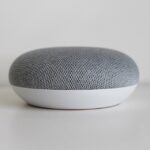If you’ve ever read about quantum computing and thought, “This sounds cool, but what the heck is it?”, you’re not alone. It’s one of the most exciting technologies of our time — and also one of the most misunderstood.
But in 2025, quantum computing is no longer just a far-off theory. Companies like IBM, Google, and Intel are racing to build usable quantum machines, and startups are popping up to solve real-world problems. So what does that mean for you?
Let’s break it down — no physics degree required.
🤔 What Even Is Quantum Computing?
In Simple Terms:
A normal computer (like the one you’re using now) stores data as bits — tiny switches that are either 0 or 1.
A quantum computer uses qubits, which can be 0, 1… or both at the same time, thanks to a weird quantum property called superposition. It’s like a light switch that’s both on and off until you look at it.
It also uses another phenomenon called entanglement, which links qubits together so that the state of one affects the others — even across long distances.
Together, these tricks allow quantum computers to process massive amounts of data simultaneously in ways traditional computers can’t.
🧠 Why Does It Matter?
Quantum computers aren’t faster at everything. But they’re insanely powerful at solving certain types of problems, such as:
-
Simulating molecules for drug discovery (faster vaccine development)
-
Optimizing complex systems (think airline schedules, logistics, or factory operations)
-
Cracking encryption (a concern for cybersecurity)
-
Training AI models more efficiently
In other words, they’re not replacing your laptop — but they are poised to supercharge industries like healthcare, finance, and energy.
📅 What’s Happening in 2025?
Here’s a quick snapshot of where we are right now in the quantum race:
🏗️ IBM
-
Released a 127-qubit processor (“Eagle”) and plans for a 1,121-qubit chip (“Condor”).
-
Offering cloud access to quantum computers so researchers can start testing algorithms today.
-
Achieved “quantum supremacy” in 2019 — meaning their quantum computer solved a problem no classical computer could solve efficiently.
-
Now working on making quantum more practical and scalable.
🚀 Startups
-
Companies like Rigetti, IonQ, and PsiQuantum are competing with unique hardware designs (superconducting, trapped ions, photonic qubits).
-
Startups are focused on turning science into usable, commercial products.
🧯 Will It Break the Internet?
A big fear is that quantum computers will eventually break modern encryption, which secures everything from online banking to private messages.
That’s not happening tomorrow — but governments and tech companies are already developing “post-quantum cryptography” to stay ahead of that threat.
In fact, the U.S. National Institute of Standards and Technology (NIST) has begun recommending new encryption standards built to withstand quantum attacks.
🛠️ How Are People Using It Today?
Even though quantum computers are still experimental, people are already learning and building:
-
Developers can code using quantum languages like Qiskit (IBM), Cirq (Google), or Ocean (D-Wave).
-
Students and professionals are taking free courses from MIT, IBM, and Microsoft.
-
Businesses are running pilot projects in logistics, materials science, and finance — using hybrid quantum/classical methods.
🧭 Should You Care?
Here’s why non-scientists should care about quantum computing in 2025:
-
It will impact your life, whether it’s faster drug discovery, cheaper energy, or better AI tools.
-
Career crossover is coming: Quantum needs not just physicists but also software developers, designers, ethics experts, and business strategists.
-
Learning quantum concepts now could open up future-proof career doors in tech, finance, government, and healthcare.
📚 Getting Started: Quantum, the Easy Way
If you’re curious but overwhelmed, start small:
-
🎓 Try IBM Quantum Composer (drag-and-drop interface): quantum-computing.ibm.com
-
📺 Watch YouTube explainers from Veritasium or Kurzgesagt
-
📘 Read “Quantum Computing for Everyone” by Chris Bernhardt
-
💻 Explore beginner-friendly tools like Microsoft’s Azure Quantum
🧠 Final Thoughts
Quantum computing isn’t magic — but it might feel like it. And in 2025, it’s gone from being a lab experiment to a technology with real-world momentum.
You don’t need to become a quantum physicist. But understanding the basics — and keeping an eye on where things are headed — might just put you ahead of the curve.





